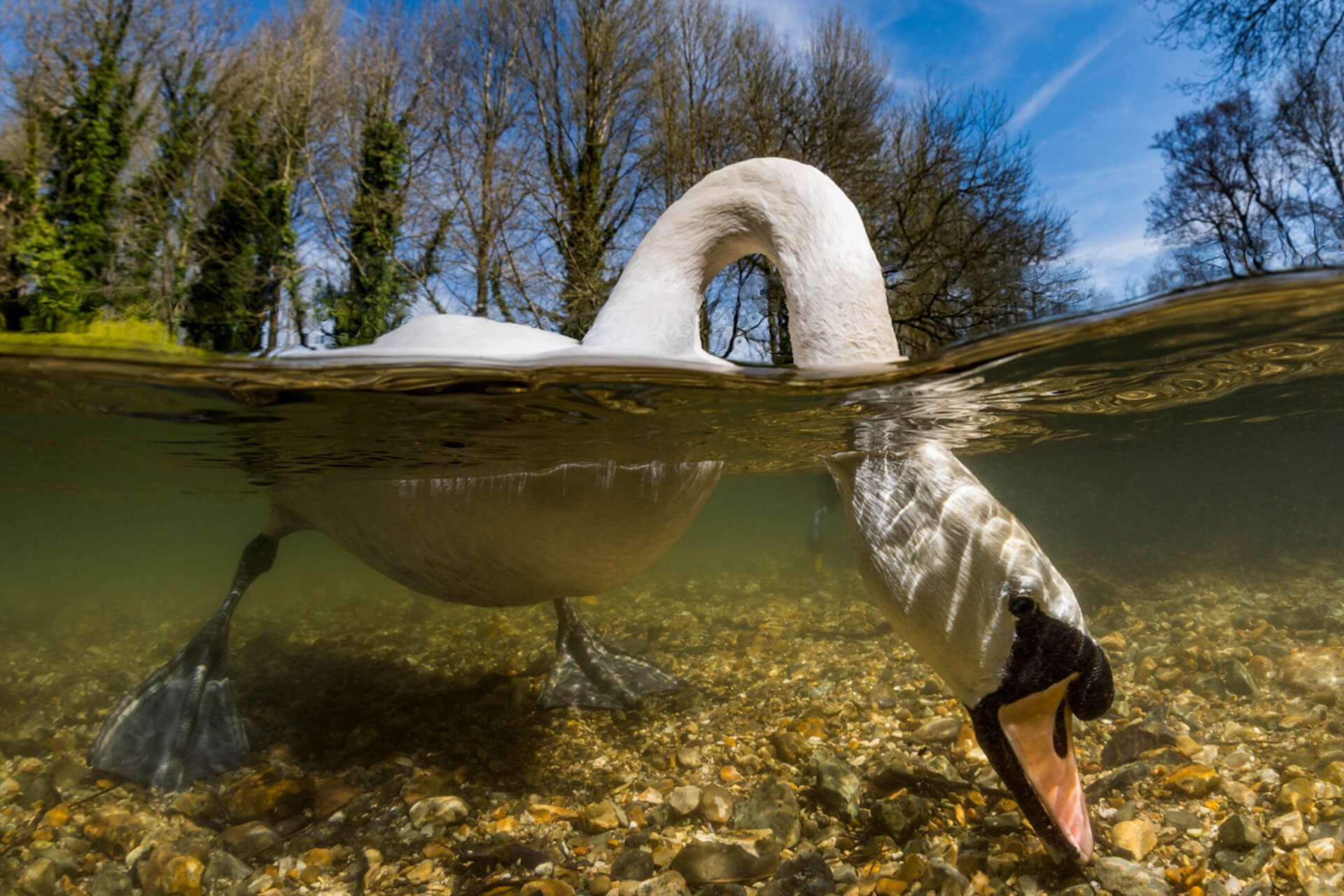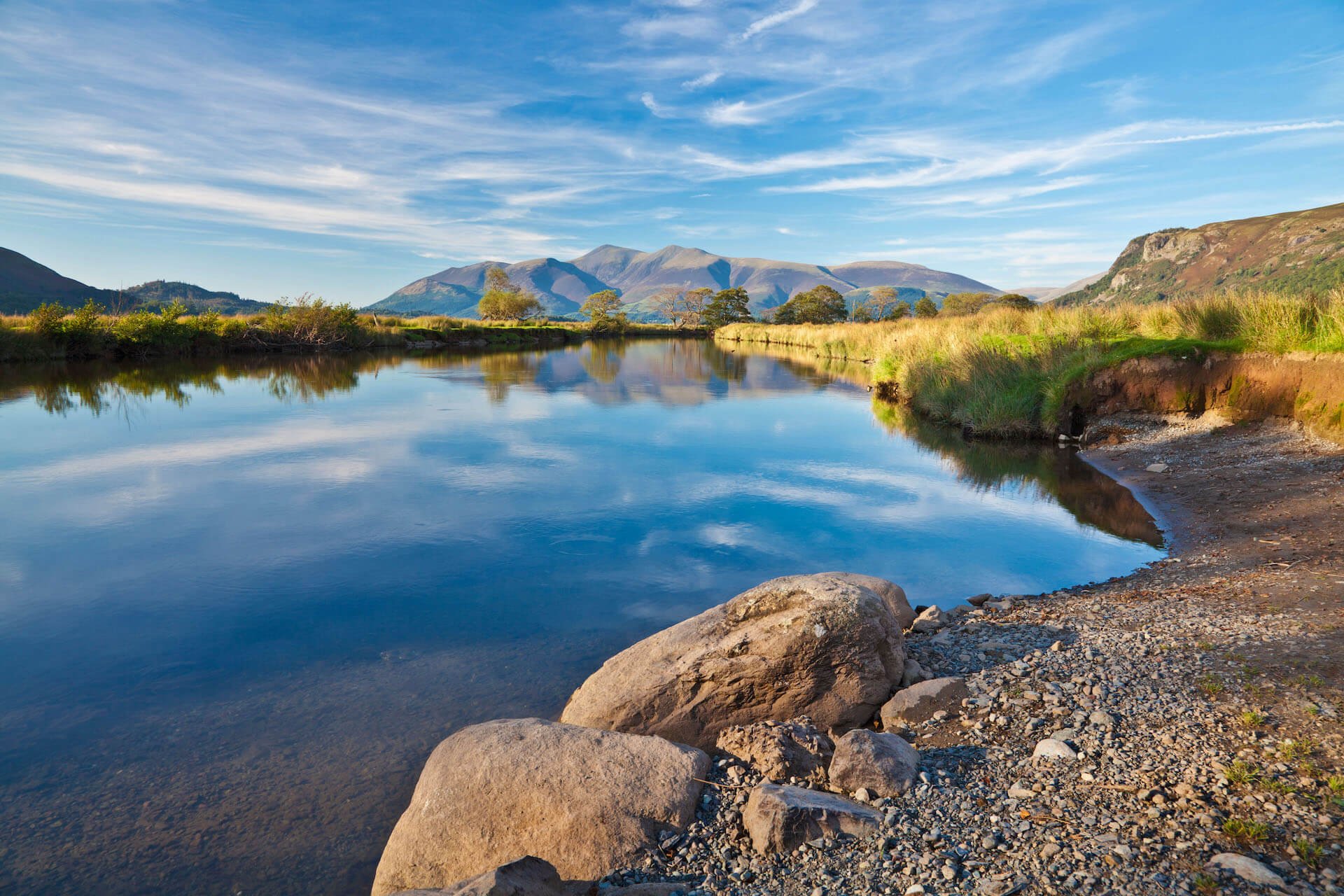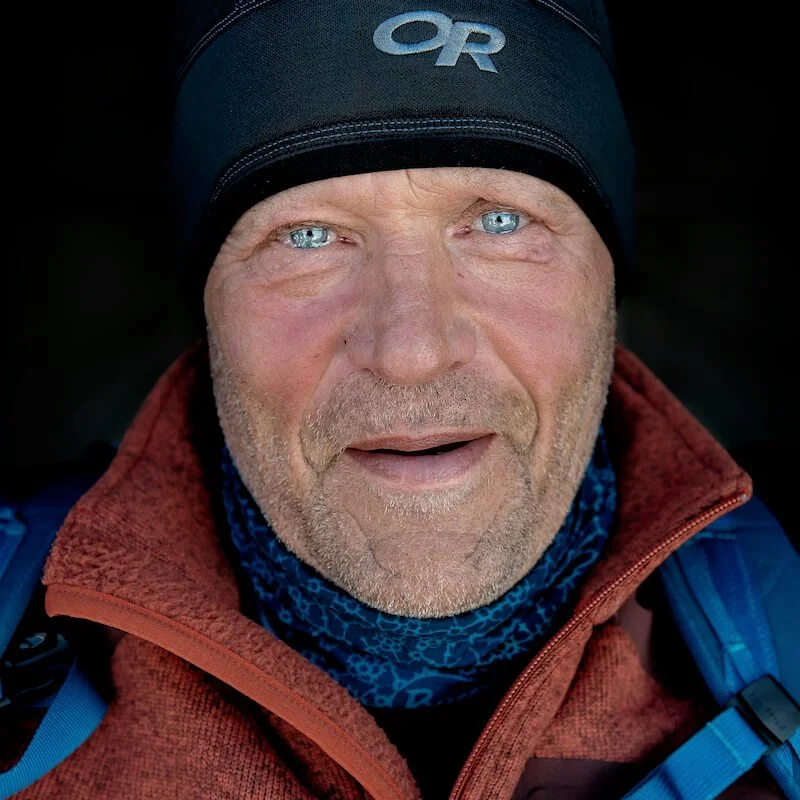
Our Environmental Impact
Every day we work hard for nature in West Cumbria. Our wins in the past five years:
62,000
Trees planted
669
Leaky dams installed to slow and store flood water
22km
New hedgerow planted
20
Weirs removed to let fish move freely
989Ha
Soil improved to reduce run-off
258km
River habitat improvements
Our mission is healthy rivers for all. We want a world where people and wildlife can thrive together, so it’s hugely important to us that we ‘walk the talk’. Our responsibility is not only to influence and inspire others to safeguard the natural world in their decision making, but also to play our part and reduce our own impacts too!
We’re working hard to reduce our environmental impact and we continually challenge ourselves to improve our performance. As everyone knows, it’s a complex challenge however, there are quick wins, longer-term plans to put in place and some changes that seem out of reach. We will however continue to learn more and more about how to be a sustainable organisation, utilise new technologies and make the changes our rivers and planet needs.
Our longer-term goal is to reduce our impact in the big areas of energy and transport.
Here are just some of the steps we are taking to improve our environmental performance:
Water
We save water in the office as much as possible by adding ‘save a flush’ packets into our cisterns (which are free from United Utilities) and we are negotiating with our landlord to get a water butt for washing down tools and nets.
Waste
We buy larger packs where possible (reduced waste) and refill items at Booths. We recycle pretty much everything you can possibly recycle at our HQ including non-metallised plastic film.
Our staff and Trustees car share whenever they can and we have a bikeability scheme for staff to buy bikes for travel to work and travel to site visits where possible.
We are taking advantage of digital technologies and meet online more to reduce transport. We also have flexible working patterns and allow working from home to reduce journeys to the office.
We promote a digital-first approach and only print where absolutely necessary.
Every time we have to print materials for our activities, fundraising, or publicity we evaluate the paper supplies on offer from our printer to make a balanced decision and use 100% recycled paper where possible.
Materials
Plastic tree tubes – we are trialling alternatives such as cardboard tubes and wooden/metal cages for trees and aim to only use them where the saplings would die if tubes didn’t protect them e.g. where deer roam free.
We actively look for opportunities to recycle materials – our Wilder Walkmill project will be taking concrete out of the channel and crushing it to improve footpaths.
All our cleaning supplies are river-friendly.
Trees – we only buy native tree species and buy as local as we can (and reduce our number of deliveries) to reduce our carbon footprint.
We try to buy locally wherever we can – whether that’s products or services, as long as it meets the criteria of our procurement process.
We are investigating the net environmental benefit of using a metal fencing system instead of wood. It reduces a reliance on felling trees (releasing carbon stores), can be recycled (although expensive) and solves the issues around rotting posts and using creosote or other chemicals to prolong their life. It additionally potentially reduces labour costs and is simpler to install.
Energy
Whilst we are currently unable to influence the energy supplier provided by our landlord, all computers and other electrical devices in the office are switched off at night or when not in use. We switch off lights when not in the room (in fact our Director is so obsessed with this she has often switched the toilet light off with people still in the loo!) and the heating is switched off when no one is in the office.
The greatest threat to our planet is the belief that someone else will save it.
Robert Swan




